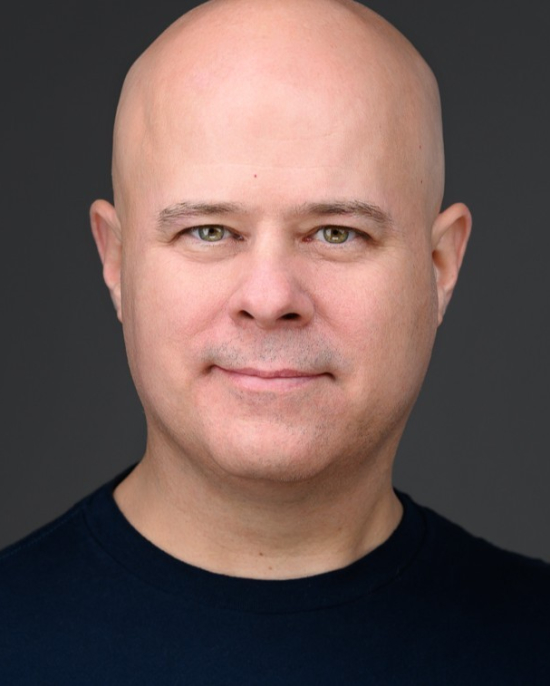Consumer Products
Get 1:1 advice from founders and operators of top hardware startups.

Alexandra Zatarain
VP of Branding - Eight SleepConsumer Product Expert

Raised $160m+
Forbes 30 Under 30
CrossFit
Formula 1
Inc. Top 100

David Laubner
Ex-Head of Growth - AmazonGrowth Marketing Expert


Amazon
Blink
Dassault Systèmes
WeVideo
Carro

Bryan Wilcox
Co-Founder & CTO - TovalaHardware Expert

Raised $70 m+ in funding
Building hardware
Y Combinator alum
PhD Mechanical Engineering
Product-driven growth

Charlie Depman
Co-Founder & CTO - RidePandaClimate Tech Expert

Bird
Scoot
General Catalyst
Porsche Ventures
Green mobility

Lauren Gallo
Brand Marketing - NikeBranding Expert


AdAge 40 Under 40
Snapchat
Apple
Nike
Soho House

Mercedes Bankston
Director - The Founder InstituteBusiness Development Expert


The Founder Institute
Loyal VC
McGraw Hill
NEC Corporation
Funderstar LTD

Fredrik Syversen
Sales Consultant - VinnsiktField Sales Expert


Field sales
Sales leadership
Sales coaching
Direct-to-consumer
Sales strategy

Tobias Bengtsdahl
Founder - memmo.meGrowth Expert


Scaled to $10m+ revenue
Built 150+ person team
Sales & operations
Recruiting for growth
Consumer sales
What Does a Hardware Mentor Do?
A hardware mentor is someone who has mastered the hardware ecosystem through earned experience with their own hardware company. These industry experts can provide invaluable advice to new hardware founders, helping them navigate the many challenges unique to the hardware industry.
What Is a Hardware Startup?
A hardware startup is a company that focuses on developing and manufacturing physical electronic devices (like consumer electronics or industrial equipment). These startups sometimes serve consumer needs but also frequently operate in sectors where tech innovation intersects with physical manufacturing processes.
How Do You Start a Hardware Startup?
Starting a hardware startup involves several key steps, which a hardware startup advisor can help you navigate.
- Start by identifying a problem or gap in the tech hardware marketplace that your product can address.
- Conduct market research to validate your product ideas and establish product-market fit.
- Build a prototype and iterate on your hardware design until you have a functional product you can sell.
Once you have a hardware product to sell, you’ll need to establish a comprehensive supply chain management system in order to source the necessary components for manufacturing. You’ll also need to account for regulatory standards and required hardware certifications in whichever markets your startup is targeting.
Y Combinator for Hardware Startups
One of the best resources for anyone who wants to launch a hardware startup is Y Combinator. YC is a renowned startup accelerator program that has supported numerous early-stage startups by providing mentorship and access to a robust founder network.
What Hardware Startups Are in Y Combinator?
Y Combinator has invested in countless successful hardware startups, including Flock Safety, Fight Camp, Eight Sleep, Athelas, and Matterport.
By participating in Y Combinator, hardware startups can gain access to a vast network of experienced mentors and potential investors and gain a significant head start.
How Long Does it Take to Make a Hardware Product?
The timeline for developing a hardware product can vary widely. For most founders, it takes anywhere from a few months to a few years to bring a hardware product from conception to market. In general, hardware startups should anticipate a longer development cycle than software startups, mainly due to the complexity of physical manufacturing processes.
The product development timeline typically includes:
1. R&D (Research and Development)
During this stage, you’ll conduct extensive research to align your ideas with market needs and develop a clear direction for your hardware product.
2. Hardware design
The next step will involve designing your hardware device itself, including:
- Selecting appropriate components
- Developing required architecture
- Ensuring the product meets desired specifications
3. Prototyping
Once you have a solid design in place, you’ll create the first physical, functional version of the product — this version won’t look pretty, but it will allow you to start collecting real data you can use to make improvements.
4. Testing
You’ll need to continue testing your prototype and making iterative adjustments to the design until you feel confident in your product’s ability to meet the typical customer’s expectations.
5. Manufacturing
Once you have a product to sell, the mass production process begins. Mass production involves tasks like:
- Sourcing components
- Coordinating with suppliers
- Assembling products
- Packaging and distributing
What Can a Hardware Mentor Do for You?
A seasoned hardware mentor can provide critical guidance for hardware startup founders throughout every part of their entrepreneurial journey. Here are some examples:
- Hardware startup mentors can offer product advice for hardware founders to help them refine their ideas and navigate the challenges of prototyping and manufacturing.
- A hardware mentor can assist with supply chain management and help founders identify reputable suppliers and manufacturers.
- Mentors can provide key insights into market trends to aid founders in making informed decisions about product positioning and go-to-market strategies.
- A hardware mentor can share their knowledge of regulatory standards and hardware certifications.
A hardware startup expert from Mentorcam can play a vital role in the success of early-stage hardware startups. Equipped with the knowledge and experience of a hardware mentor, founders can navigate the complex landscape of the hardware industry more effectively, increasing their chances of building a thriving hardware business.
Related areas of interest: Growth Marketing, Branding, Sales